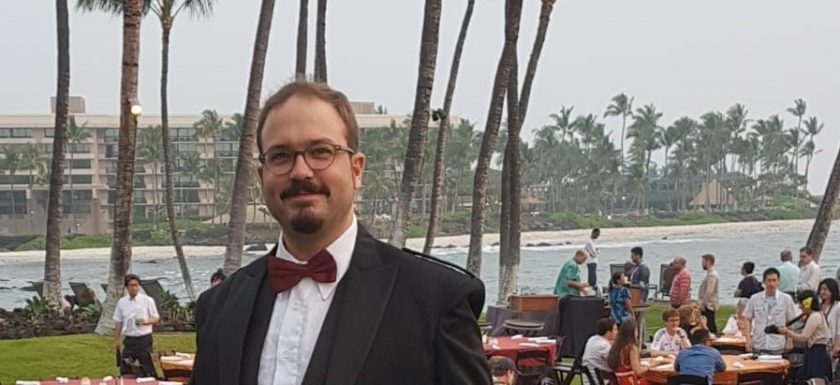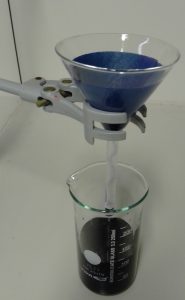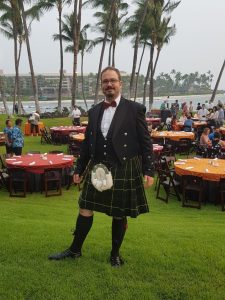
Joachim Breternitz is at his office at the University of Potsdam, when my call reaches him. The chemist is a scientist at the HZB Department of Structure and Dynamics of Energy Materials since 2016. He is the scientific day-to-day supervisor of two, soon three, doctoral students.
What are you doing at the moment?

I am currently working as interim chair (Vertretungsprofessor/ substitute professor) for inorganic chemistry at the University of Potsdam and right now I am about to cook red cabbage in the lab. Due to the Corona pandemic, we are conducting some chemistry labs online. The idea is to prepare tasks for the students to do at home – in their kitchen, for instance. Take red cabbage: it is an excellent indicator for acids and bases.
Where and when did you do your doctorate yourself?
I finished my PhD at the School of Chemistry at the University of Glasgow, not that long ago, in 2016. I was lucky enough to have a supervisor who gave me a lot of freedom in my scientific endeavours. That was a good fit for me. Other doctoral students, on the other hand, would have liked closer supervision. There are simply different styles, but it is important that the style of supervision suits the student and vice-versa.
Was there anything you missed during your doctorate?

At Glasgow University, it is not usual to do teaching during your doctorate, for example, to hold seminars. In fact, I missed that. However, I was able to supervise placement students and chemistry labs.
What did you learn from your supervisor?
Two main things. Firstly: trust the students and give them the freedom to try things out, and to develop their own ideas. Secondly: you can work very well together without exerting pressure, on the basis of respect. I also like the British sense of humour.
Is there any advice, you would give to a doctoral student doing a PhD abroad?
Taking part in a group or an activity outside of university. I was member of the Glasgow Orchestral Society, Scotland’s oldest amateur orchestra. I play the double bass, a bulky instrument that does not fit in the pocket of a travelling PhD student. Luckily this orchestra was able to provide me with an instrument. That way I also got to know people who did not work at the university and that was great.
What do you find challenging about mentoring young people yourself now?
Like most scientists, I did not receive much didactic training or communication training during my studies. Communicating effectively and expressing opinions, that also may be critical at times, in a manner that does not affront the opposite is not always simple, but all the more important. I took an extra-curricular course in Teaching English as Foreign Language that covered some of these aspects and learned a lot from the group and my excellent colleagues here at HZB. A more natural integration in the curriculum of future researchers would probably be extremely useful.
What do you expect from doctoral students?
I would like them to develop their own ideas and to present these ideas and implement them. Right from the beginning I encourage student to do this. For me this is the core of a doctorate.
What do you do consciously to support the students?
In our group we started asking the students to hand in a written report; they do it every fortnight. This enables a lot exchange, everyone knows what the others are doing. We also encourage the students to get used to writing, and to scientific writing specifically. Usually such a report is relatively short (2-4 pages), however this is the template of a scientific journal. This kind of exercise helps tremendously to summarise things, to structure thoughts, and it is a great training. By the way, my supervisor in Glasgow actually inspired me to come up with this idea.
And how do you relax?
I work to relax (laughs). OK, sometimes I enjoy watching French and English crime series. But I am happy when our orchestra rehearsals start again and we can give concerts, again.
Thank you for the interview!
